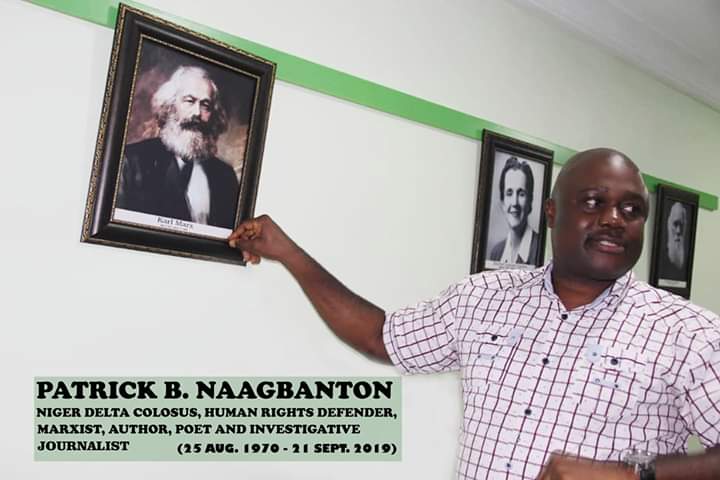Amnesty International has described late Patrick Naagbanton as a fearless and inspirational human rights champion, who dedicated his life to helping others.
While mourning the death of the 49-year-old activist and writer in Port Harcourt, Amnesty International said: “Patrick’s life work was to campaign for justice and defend the rights of ordinary Nigerians. He leaves behind an enormous legacy – not only in terms of all those people he helped but also the countless activists he mentored and inspired,”
Kumi Naidoo, Amnesty International’s Secretary-General said Patrick worked across the country, but his primary focus was on the situation in his home region, the Niger Delta which has suffered from devastating pollution caused by the oil industry, as well as years of militancy, high crime levels, and politics-related violence.
“Patrick was a highly skilled and effective human rights investigator in one of the riskiest parts of the world. He had an incredible contact book and liked to travel by public transport to know what ordinary people were talking about. He was charming, charismatic, selfless and courageous. Amnesty International has lost a close friend,” said Kumi Naidoo.
Patrick Naagbanton started out as an activist during the ultimately successful pro-democracy campaign in the early 1990s when Nigeria was ruled by a brutal military regime. The authorities repeatedly arrested and harassed Patrick, along with other campaigners, and in 1996 held him in solitary confinement for over a month. The year before, the regime had executed Patrick’s mentor, Ken Saro-Wiwa, who had led a campaign against the oil industry. Patrick was undeterred by these experiences and continued his activities underground.
In 2005 he established the Centre for the Environment, Human Rights and Development (CEHRD), which conducts groundbreaking research, advocacy and campaigning work in support of communities in the Niger Delta. Patrick and colleagues at CEHRD were instrumental in the success of one of the most important international corporate accountability cases of recent years, when one community, Bodo, took the oil multinational Shell to the High Court in London.
In a settlement with the community, Shell agreed to pay $ 70 million dollars (£55 million pounds) in compensation for damage caused by two massive oil spills. The company had initially offered less than ten thousand dollars.
Patrick also helped the relatives of Ken-Saro-Wiwa bring a case against Shell in a US court, for what they said was its role in his death.
On the eve of the trial starting, in 2009, Shell settled out of court with the plaintiffs. Shell paid them $15.5 million but did not accept liability.
In 2012, Patrick stepped down as coordinator of CEHRD, to continue his activism in various other ways. He continued to investigate human rights abuses across the Niger Delta and elsewhere in Nigeria, sometimes along with colleagues from Amnesty International.
Patrick also wrote for newspapers and published several volumes of poetry.
CEHRD announced that Patrick died after being hit by a car in Port Harcourt.
Amnesty International calls on the authorities to ensure that his death is fully investigated.




